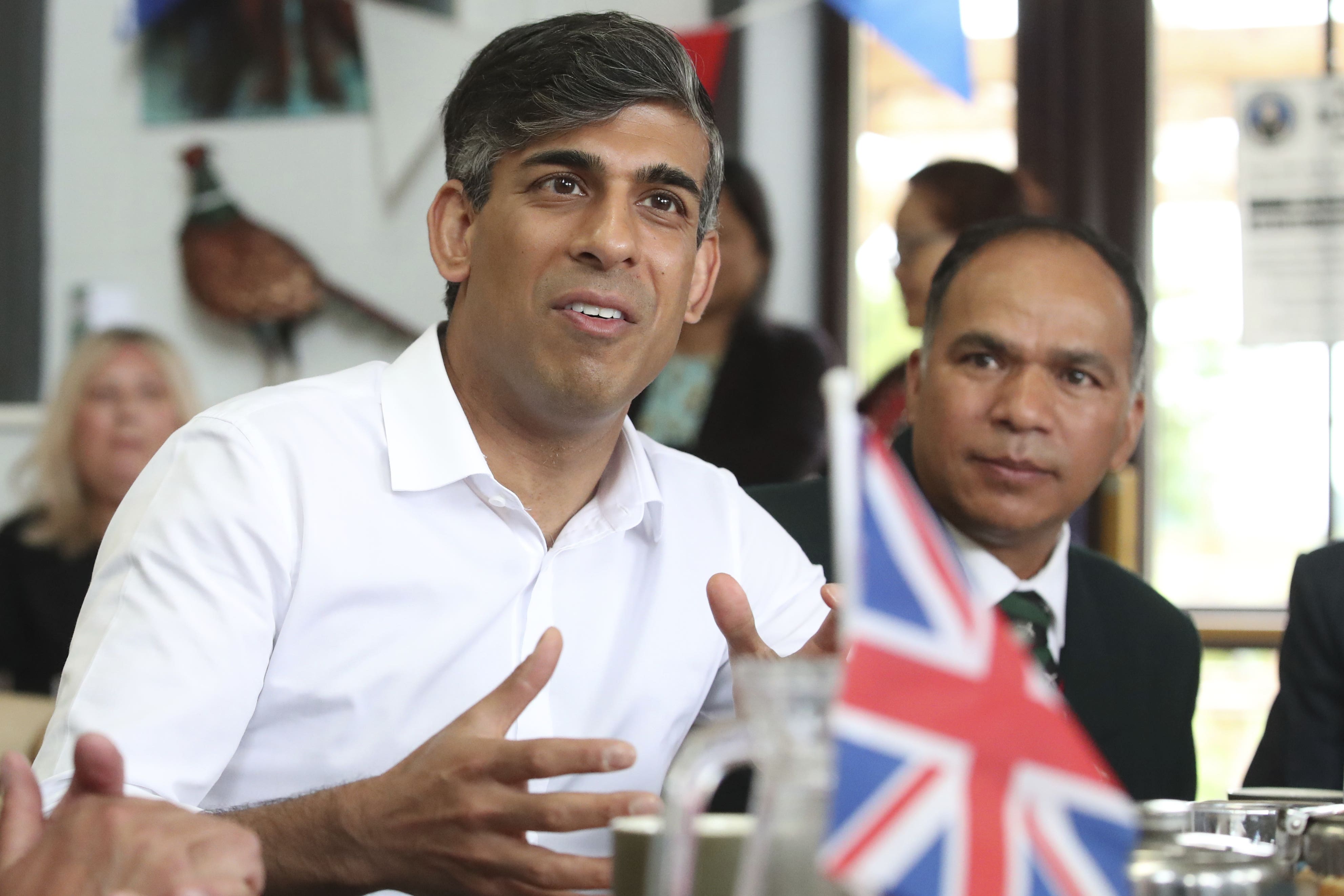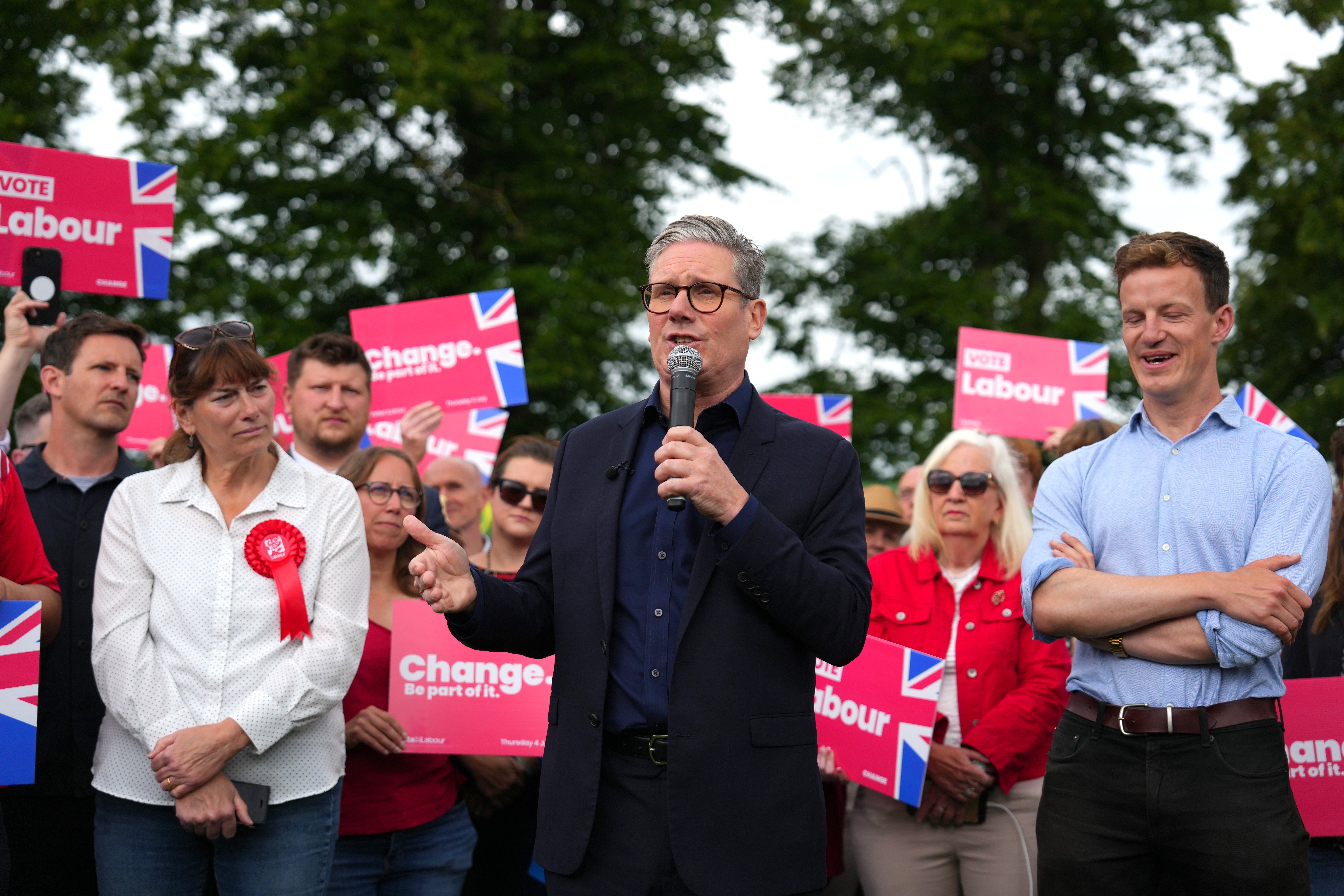Tories accused of ‘hollowing out’ Britain’s defence as historic regiments culled
After 14 years of Tory rule, the British Army has lost 23 regiments, with the number of units at its lowest level since 2010, The Independent can reveal
Your support helps us to tell the story
From reproductive rights to climate change to Big Tech, The Independent is on the ground when the story is developing. Whether it's investigating the financials of Elon Musk's pro-Trump PAC or producing our latest documentary, 'The A Word', which shines a light on the American women fighting for reproductive rights, we know how important it is to parse out the facts from the messaging.
At such a critical moment in US history, we need reporters on the ground. Your donation allows us to keep sending journalists to speak to both sides of the story.
The Independent is trusted by Americans across the entire political spectrum. And unlike many other quality news outlets, we choose not to lock Americans out of our reporting and analysis with paywalls. We believe quality journalism should be available to everyone, paid for by those who can afford it.
Your support makes all the difference.The Conservatives have been accused of “hollowing out” Britain’s armed forces as Rishi Sunak tries to turn the focus toward defence for the final days of the general election.
After nearly 15 years of Tory rule, the British Army has lost 23 regiments, with the number of units at its lowest level since 2010, The Independent can reveal.
Click here for our live coverage of the general election campaign.
New research by Labour shows the Army has lost more than a tenth of its regiments, with cuts from the Royal Armoured Corps, Royal Artillery, Royal Medical Corps, Royal Military Police and Royal Logistics Corps.

Some of the cut regiments include those with historical significance. The 1st and 2nd Royal Tank Regiments (RTR) were both lost to a merger in 2014.
A predecessor of 1 RTR took part in the first-ever tank offensive in 1916. During the Second World War, the regiment also took part in the Battle of El Alamein in 1942 and the Normandy Landings of June 1944.
The cuts mean there are just 176 regular and reserve regiments remaining.
Meanwhile, separate figures seen by The Independent show the proportion of serving personnel living in the worst-graded military single-living accommodation is now nearly 40 per cent.
Official figures showed there are nearly 30,000 personnel living in accommodation that is either grade four or below, the lowest gradings given by the Ministry of Defence.
This means three times more personnel live in the worst accommodation than the best. There are no set criteria for grade four accommodation, but quarters with enough so-called “deficiency points” for defects such as damp and mould among other issues are graded four or below.
An independent review of armed forces housing provision by Lord Kerslake highlighted issues with insulation, damp and mould, heating and hot water, as well as with gas and electrical faults and pest infestations.

The review also warned poor housing for service personnel affected the health and wellbeing of them and their families.
“This in turn reduces the operational effectiveness and efficiency of the armed forces,” the review found.
Shadow defence secretary John Healey said: “These figures are the latest example of how Tory ministers are failing our forces daily with the dire state of military housing. The Conservatives have corroded the nation’s moral contract with those who serve. Personnel are living in damp and mouldy housing and morale has fallen to record lows.”
Meanwhile, responding to the falling number of Army regiments, a Labour source added: “The Conservatives like to talk tough on defence, but they have consistently hollowed out our armed forces at a time when threats are increasing.”
It came after the prime minister sounded the alarm over national security, claiming Vladimir Putin “does not want the Conservatives to be re-elected”.
“Putin would like nothing more than for Britain to step back, to appease his aggression rather than face it down and that is what will happen with another party in power,” he told The Telegraph.
Sir Keir Starmer has previously criticised “desperate” Tory suggestions that Labour is a threat to national security, saying that his party has united with the government on defence matters such as support for Ukraine.
The latest Labour attacks on the Conservatives are a sign the party under Sir Keir is happy to take on the government on defence policy. Under former leader Jeremy Corbyn defence was seen as a weak spot for the party, alienating traditional Labour supporters with national security concerns.
The government is now also relying on private security guards to protect the biggest British army base in the world.
Private guards have been charged with assisting in the “detection of terrorist activity”, helping secure properties within the Garrison area at Catterick, detecting and preventing crime, and helping to prosecute offenders.
Under a three-year, £811,703 contract, which began in April, a Lincolnshire-based firm named Profile Security Systems has been handed responsibility for manning a CCTV centre.
Catterick Garrison, which has a population of around 13,000, was the target of a break-in in 2019, when burglars forced their way into homes on the base and stole items including cash, cameras and jewellery.
Defence secretary Grant Shapps said: “We live in an increasingly uncertain world. That is why we have committed to increased defence spending, up to 2.5% of GDP by 2030.
“Labour have spectacularly failed to meet this commitment.
“Only the Conservatives have a plan to keep this country safe. Don’t risk giving Labour an unaccountable majority that will allow Starmer to make us less safe and put up your taxes.”
The Ministry of Defence was asked to comment.
Join our commenting forum
Join thought-provoking conversations, follow other Independent readers and see their replies
Comments